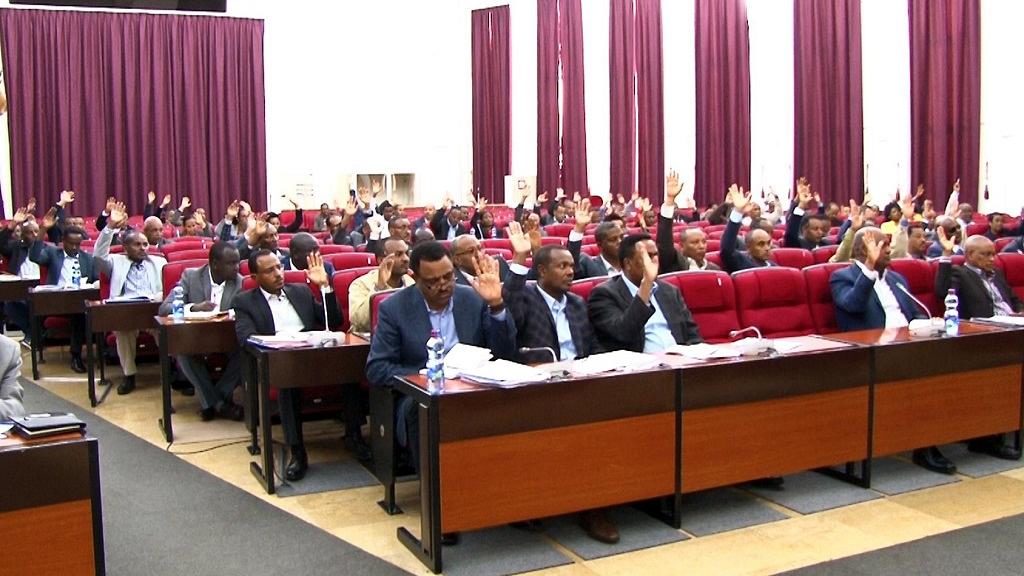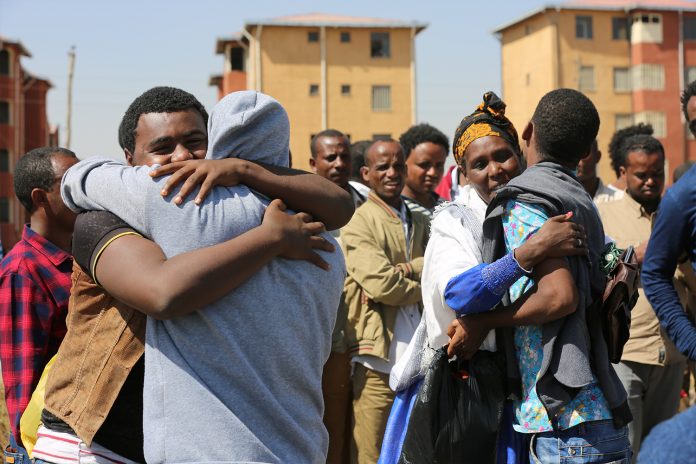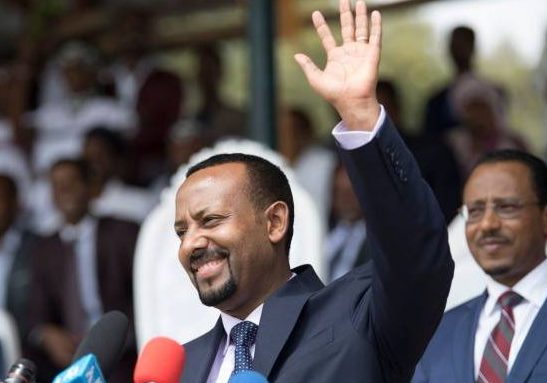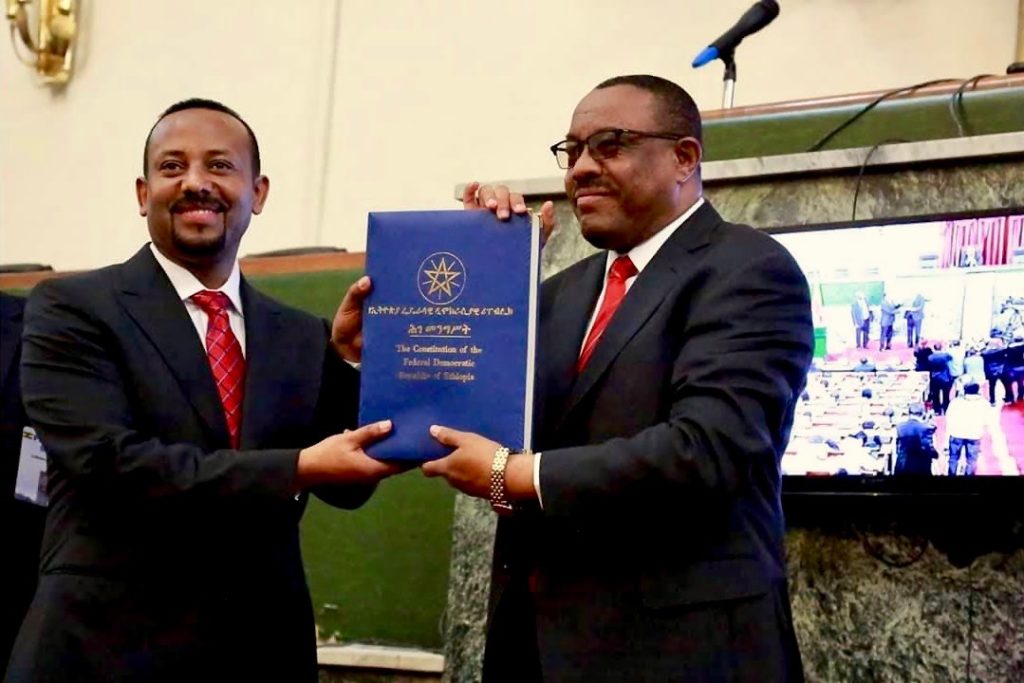The first months of 2018 have been marked by considerable changes in Ethiopia, with the surprise resignation of Prime Minister Hailemariam and the release of thousands of prisoners across the country. This article was originally published in the 10th issue (April 2018) of The Ethiopian Messenger, the quarterly magazine of the Embassy of Ethiopia in Brussels.

In the previous issue of our magazine, we gave an account of the breakthrough agreement made between the ruling and opposition parties to amend key Ethiopian laws, such as the electoral law, the anti-terrorism law and the law governing civil society organisations.
Following the EPRDF executive committee’s 17-day long meeting which took place from 12 to 30 December 2017, based on the government’s decision to release prisoners, more than 6000 thousand prisoners have been released both from federal and regional detention centres; including leaders of political parties. Since then, the first months of the year were marked by considerable changes in Ethiopia.
Months of change
February 2018 saw an unprecedented event in the country when Prime Minister Hailemariam Dessalegn announced his resignation. For the first time in history, a sitting Prime Minister resigned voluntarily from power. In 1974, the then Prime Minister Aklilu Habtewold quit and was replaced by Endalkachew Mekonen following mounting pressure from students and the military. However, Aklilu’s resignation did not have real consequences because Emperor Haileselassie was de facto holding power in the country. This time, the resignation of Prime Minister Hailemariam came as a surprise to everyone, making some sceptical and bringing big hopes to many. To his credit, PM Hailemariam successfully charted the transition after the unexpected death of the late PM Meles Zenawi in 2012. Flagship projects such as the Addis Ababa Light Train (AALT), the Ethio-Djibouti electrified passenger and freight train line, and the construction of industrial parks in different parts of the country where under his direct watch. PM Hailemariam’s firm stance to fight corruption and to reform governance should also be recognised. Concerning Foreign relations, Ethiopia has continued to be a credible partner, both in Africa and to the rest of the world. The consecutive visits to Ethiopia of the Foreign Ministers of the United States of America and that of Russia, even though the country had declared a state of emergency, are further proof of that.

A surprise resignation
the PM announced his resignation on 16 February 2018, his decision caught many by surprise. Reactions to the news were mixed. As Ethiopia had never experienced the voluntary departure of its top leader, people were wondering about the reasons that pushed him to take such a bold and courageous decision. Despite the continuous and growing violent protests in some part of the country most people in the country were expecting him to stay in power until the end of his term in 2020. However, for those who knew Prime Minister Hailemariam’s determination to maintain the peace and stability of Ethiopia, and his dedication to contributing to the democratisation process of the country, his decision was perceived as the normal course of action. In fact, the Prime minister explained his motivation to take such a decision as a will “to become part of the solution.” Indeed, his action will impact many in the country and perhaps on the continent.
Why are some sceptical?
Some, both in and outside the country, are sceptical about whether PM Hailemariam’s resignation was entirely voluntary. Indeed, even if departure from political office in the event of failing to satisfy public demands is a common occurrence, notably in the Western world; this had never been the case in Ethiopia. Public discontent alone was not sufficient for leaders to be removed from office. Armed struggle or coups d’état were the common ways to topple leaders from power. Against this historical backdrop, the surprise resignation of a leader naturally provoked scepticism on whether PM Hailemariam had resigned voluntarily. Nonetheless, the approval of his resignation by his party, the South Ethiopian Peoples’ Democratic Movement (SEPDM) and that of the EPRDF’s executive committee shows that the process of resignation was healthy and motivated solely by the PM’s personal interests.
The hope to deepen democracy
During his resignation announcement, the Prime minister underlined that by making this decision, his objective was to play his part in the long march towards deepening democracy in the country. Such concession from the top leadership clearly shows, among other things, an essential change in the perception of power around the elite in Ethiopia. Knowing the Ethiopian peoples’ tradition and tendency to follow the footsteps of its leaders, bold decisions of such kind taken at the top will undoubtedly have an overarching and long-lasting impact on the youth in general and those holding public office in particular.
The ruling party’s quest to enhance the democratic system in Ethiopia arguably started in 1991, when the incumbent ruling party EPRDF invited all armed groups in the country to participate in drafting the new Constitution and establishing legal opposition political parties. During the last election in 2015 alone, 57 different political parties participated in the national polls. For a country which until recently had never experienced a multiparty political system, such development was a step forward to enhance democracy. Despite opposition parties gaining nearly one-third of the Federal Parliament during the third national election in 2005, the process of democratisation in Ethiopia is still in its infant stage. From this point of view, the candid discussions between the ruling and opposition political parties, the release of prisoners and PM Hailemariam’s resignation to become part of the democratisation process will not only cement a healthy change of power but has also generated an immense hope for the long-lasting peace and stability in the country.

A new beginning
2 April 2018 was yet another historical day in Ethiopia, as the outgoing Prime Minister graciously handed over the country’s constitution to the new Premier Dr Abiy Ahmed, in the national Parliament. Abiy Ahmed’s conciliatory inaugural speech emphasised the importance of working in close cooperation with opposition parties. He added that the ruling EPRDF is open to negotiating with any political party that wants to hold talks peacefully and readier than ever to help establish a vibrant political environment in Ethiopia. Since taking office, PM Abiy has been meeting with the public in different parts of the country in the Somalia, Oromia and Tigray regions as part of a general effort towards reconciliation. These initiatives promise a bright future for a strengthened democracy in the country.




